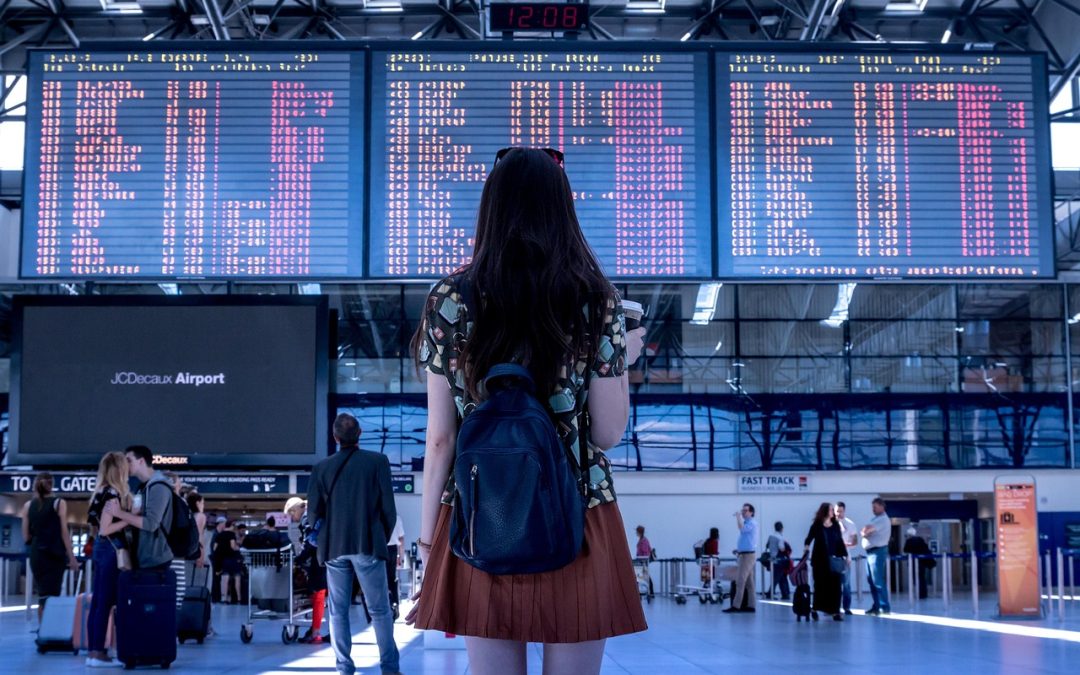Travel stress and incivility often peak during the holiday season, turning what should be a time of joy into a source of anxiety for many. As millions of people hit the roads and airports to gather with loved ones, tensions rise and civility plummets, especially when travel plans falter or impatience grows within crowded, high-pressure environments.
Why Holiday Travel Is Stressful
The holiday season brings an incredible surge in travel volume, with estimates suggesting that close to 80 million Americans are on the move for Thanksgiving alone. Extensive traffic, long lines at airports, unpredictable weather conditions, and the increased risk of delays all add to the collective tension. Furthermore, travelers often wrestle with disrupted routines, poor sleep, and the constant pressure to “make everything perfect,” compounding feelings of stress and irritability.
Incivility on the Move
Travel environments bring strangers face-to-face, often in very tight quarters. It is no secret that when stress mounts, the risk of incivility rises. Reports indicate a spike in rude and even aggressive behaviors ranging from verbal outbursts and noncompliance with staff requests to more subtle actions like line-cutting or seat disputes. Notably, post-pandemic travel has seen in-flight disruptive incidents increase nearly 400%, capturing the attention of both the public and transportation authorities. Sean Duffy, US Secretary of Transportation, has called on Americans to be especially mindful of being civil as they travel this holiday season.
The Psychology Behind Uncivil Tourist Behavior
Modern research links tourist incivility to weakened norms, reduced self-discipline in unfamiliar environments, and “relative deprivation”—when travelers sense they are getting less favorable treatment or comfort than others around them. The combination of personal stress, cultural differences, and environmental frustrations (like unexpected delays or lost luggage) often creates a perfect storm for lapses in kindness and patience.
Tourists who feel slighted or disadvantaged are especially prone to unkind behavior, further fraying the social fabric of travel and damaging the collective experience for everyone. These behaviors may seem minor—ignoring a queue, snapping at an attendant—but cumulatively, they fuel an atmosphere of hostility and ruin what could be positive encounters with others.
Strategies to Reduce Stress and Foster Civility
Experts recommend a series of practical actions to keep stress in check and promote a more civil travel environment:
– Plan proactively for weather, route, and lodging disruptions to reduce last-minute panic.
– Pack healthy snacks and make time for movement, even if it’s just a walk during a layover.
– Stay hydrated and stick to a regular sleep schedule as much as possible.
– Limit digital overload by setting specific check-in times for flight updates or emails.
– Be alert to your own growing frustration or fatigue and take proactive breaks when needed.
Government campaigns and airline guidelines now explicitly encourage travelers to show more “courtesy and class,” reminding everyone that small gestures—thanking staff, following instructions, showing patience—help de-escalate tense situations for the entire crowd.
BAM Skills: Your Toolkit for Civil Holiday Travel
The holiday rush presents a unique opportunity to practice the “BAM” (Breathe, Active Listening, Mindfulness) skills from my workplace incivility training. Here’s how to apply BAM on the go:
Breathe: Take a slow, deep breath when you’re triggered—a missed connection, a rude remark—before reacting. Check out the work of Andrew Huberman and integrate the “physiological sigh” into your breathing tool kit.
Active Listening: Recognize your own stress and validate it, as well as the stress in others. If a staff member snaps at you, keep in mind that they may have just dealt with someone hostile who has “infected” them with “the incivility virus.” Instead of reacting, use active listening skills. A simple “I see this is tough for both of us” helps defuse tension.
Mindfulness: Stay mindful of your own verbal/nonverbal behavior. Choose civility, even in small ways, such as offering a smile, standing aside, or using a calm tone to resolve an issue. Let go of minor slights to keep the travel process moving and preserve your own peace of mind. I recently heard of a medical office that posted a sign at the window where patients would be speaking with front office staff: “Remember that the person with whom you are speaking is loved by someone.”
Incorporating BAM into your travel routine doesn’t just benefit you, but everyone around you. Civility isn’t just a workplace virtue—it’s a gift you can offer fellow travelers, helping everyone arrive at their destination in better spirits. Practicing these skills during the holidays creates a ripple effect of stress reduction and goodwill, turning stressful journeys into opportunities for connection and calm.

